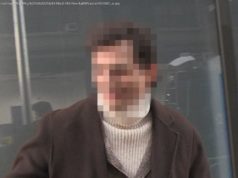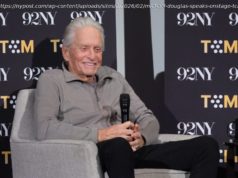The drug kingpin takes the stage in Brooklyn.
Everyone agreed that the El Chapo case, which will hear its opening arguments tomorrow in federal court in downtown Brooklyn, is the biggest trial to hit the Eastern District of the New York U. S. Attorney’s office in years. The jurisdiction has presided over mob and terrorism cases, the FIFA soccer corruption proceedings, and the conviction of hedge-fund bandit Martin Shkreli. But these were small potatoes compared to El Chapo, a.k.a. Joaquín Guzmán Loera, the son of an impoverished poppy-field tender who grew up to be the man law-enforcement officials claim to be the single biggest, richest, most violent drug dealer ever.
It would be difficult to overrate the significance of El Chapo in the annals of the narco trade. Even his seemingly denigrating nickname “Shorty,” owing to his diminutive five-foot-six height, is an asset, being as he is the same size as Al Pacino of “say hello to my little friend” fame. If Pablo Escobar, the first narco-superstar to cross over into the popular imagination, exuded a relatively urbane Euro demeanor, El Chapo Guzmán is strictly country, with all the agrarian peasant rage that comes with it. Concerned with maximum volume, Guzmán’s unending product supply moved via fleets of tractor trailers, 747s, and submarines. In an early bit of bravura, he used gallon cans of jalapeños to smuggle seven tons of coke into the U. S.
More significantly, it was Guzmán who ramped up the ultraviolence that has come to characterize the 30-year Mexican Drug Wars. In the early 1990s, reportedly brandishing a gold-plated AK-47, Chapo led his paramilitary followers in an extraordinary turf war against Tijuana Cartel. Later, he proved a major player in the siege of Juárez, a ten-year conflagration that has claimed, according to most accounts, more than 100,000 people, many of them beheaded (a Chapo trademark) and thrown into mass graves.
All of the above and much, much more has landed the now 59-year-old Guzmán in Brooklyn, home of the original Scarface, Al Capone, who in 1899 was born in a cold-water flat at 95 Navy Street, barely a dozen blocks from where his successor as Public Enemy No. 1 now faces 17 federal counts, including 33 charges of conspiracy murder.
The hype was in the air shortly before the jury selection began. El Chapo had been moved. When he first came to New York, the Feds had him at the MCC detention center on Park Row in Manhattan. That meant every time Guzmán had a court date, the city had to close down the Brooklyn Bridge, one more glimpse of doomsday traffic management, which in this case was accented by a pair of surveillance helicopters hovering overhead. Now, the Feds have built Guzmán his own special lockup on the Brooklyn side. No one seemed to know where the cell was, but as one court officer told me, he heard it was “Hannibal Lecter ready.”
Captured again after yet another gunfight, which included being chased through the sewers of industrial Los Mochis, Guzmán was extradited to New York on January 19,2017. Rumors abound about the timing of the handover, with many saying it was prompted by the raging border-wall dispute, with Chapo serving as a goodwill gift or bargaining chip from Mexican leader Enrique Peña Nieto to then-incoming President Donald Trump, a man not adverse to playing the Scarface card himself.
The jury-selection process was fairly uneventful. For two-and-a-half days, government attorneys and El Chapo’s lawyers — Eduardo Balarezo; defender of the late Guzmán Sinaloa Cartel partner Arturo Beltrán Leyva; and Jeffrey Lichtman, former mouthpiece for John Gotti Jr. — interviewed candidates. Finding a quorum of El Chapo’s “peers” from a pool of the Brooklyn working class was unlikely at best, but the results (the names of jury members will remain secret for the duration of the trial) didn’t auger well for the defendant. A high percentage of the jurors had law-enforcement connections. One has a son in the NYPD and another is a retired Department of Corrections employee. A third juror allowed that she had “a close relation” who had serious problems with drugs.
Another potential problem for Guzmán, and possibly for the legitimacy of the trial itself, was that an overwhelming percentage of the jurors stated at least a passing knowledge of Chapo’s career exploits. Indeed, several had watched the still-running Netflix series “El Chapo.” A quick binge of the show’s opening season (there are three) gives a rather graphic account of Guzmán’s early years, including the infamous airport parking-lot shoot-out, which resulted in the death of Cardinal Posadas Ocampo, archbishop of Guadalajara. Asked by the attorneys if they could set these seeming damning images “aside,” the prospective jurors said they would try.
If any of this bothered El Chapo, he showed little sign of it. His hair combed and dyed black, he sat beside his million-dollar brain trust, attired in a blue jacket and Tony Montana–style wide-collared shirt with a bemused, detached manner that led to conjecture that he had been heavily medicated. Aside from smiling when a member of the jury pool asked for his autograph, the world’s biggest dope dealer asked only one thing: that he be allowed to hug his wife prior to the beginning of the trial. It would be a “humanitarian” gesture on the court’s part, Chapo’s lawyers said. While “sympathetic” to the request, Judge Brian Cogan denied it on security grounds.
On the eve of Brooklyn’s big trial, many questions hang in the air. No doubt some answers will be provided by “the twins,” a.k.a. the Flores brothers, Margarito and Peter, who ran Chapo’s thriving business in Chicago for nearly ten years, even as they meticulously reported every detail to the U. S. authorities. Another matter worth looking into will be whether such “kingpin” trials are little more than archaic charades in the era when the public ire has turned more squarely on the drug makers of Big Pharma. Also interesting is what is likely to happen to El Chapo’s alleged $14 billion fortune under the current, much decried USA criminal forfeiture laws.
But real secrets lie with Chapo himself, because if there’s anything that seems sure, it is that his conviction is a mere formality. The Feds are not about to blow this one.






